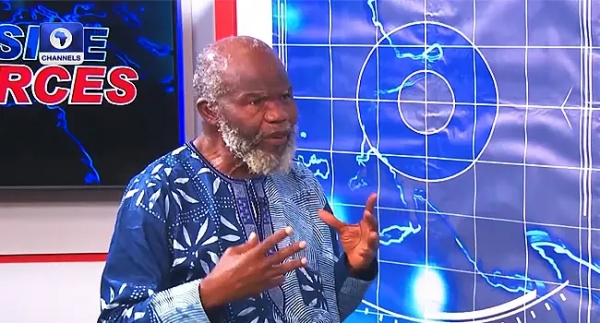A retired military officer, General Ishola Williams, said the immunity clause in the 1999 Constitution empowers politicians to be corrupt.
Williams stated this in an interview on Channels Television on Friday.
According to him, acts the law shields politicians from arrest and prosecution for fraudulent offences while in office.
He said the 1999 Constitution is corruption-prone because it provides immunity for crooks once they assume elective offices and “immunity gives room for impunity”.
“That constitution is corruption-prone. Why is it corruption-prone? Immunity is equivalent to impunity.
“So, any constitution that has immunity is creating institution for impunity because you bring a crook into government and you say: ‘Oh, this crook because he has come into government, he is now a saint, so anything he does, leave him until he leaves.
“What then happens? The governors become kleptocrats and demigods in their states, approve any amount they like and nobody audits them. If you ask accountants, they will tell you that everybody is auditable except God, but not in Nigeria.”
According to Section 308 of the 1999 Constitution, no civil or criminal proceedings can be instituted against the President, Vice President, the 36 state governors and their deputies. The section also states that they can’t be arrested or imprisoned.
He said politicians since 1999 have been blaming General Abdulsalami Abubakar for the 1999 Constitution but politicians themselves don’t want to correctly amend the constitution because “of the powers that it gives them, and the greed and the selfishness.”
“If not for corrupt government officials, by now Nigeria should be competing with South Africa because we have the brain power.”
He said Nigeria should develop a tailor-made economic solution like the Asians, and not blindly follow the economic template of the West.
General Ishola said the leaders of the First Republic were selfless and sacrificial unlike the “characterless” ones in government at the moment.
Speaking on why he resigned after the June 12, 1993 annulment, the retired General said, “coups are not necessary.”
“The case of coup or no coup in the Nigerian setting, any military officer in his right sense knows that it doesn’t work because it is temporary in nature and that is the mistakes that those boys in other West African nations like Mali and co have been making.
“The only person who only understood this was Abdulsalami Abubakar. He was there within 11 months and he handed over power because he knew that it (the military) can’t solve the problem of Nigeria,” he said.
“After the civil war, I reflected about why we fought the civil war and I couldn’t find any cogent reason except that two lieutenant colonels got us into the war – one was smart and the other was not, one was prepared, political ambitious, the other one was just following his career,” he added.
General Ishola urged civil society organisation to organise conferences and promote awareness about followership responsibilities to get good governance and demand accountability from leaders.
According to him, “the followership of Nigeria has the greatest responsibility”.
“I believe that the military was wrong at that time. But the interesting thing is the followership. Look at every country in Africa, whenever the military takes over, people go into the streets and rejoice.
“Nobody has been able to ask that question why the people rejoice whenever the military takes over. It is because the followers choose the wrong leaders and the leaders take advantage of the irresponsibility of the followers,” he said.


